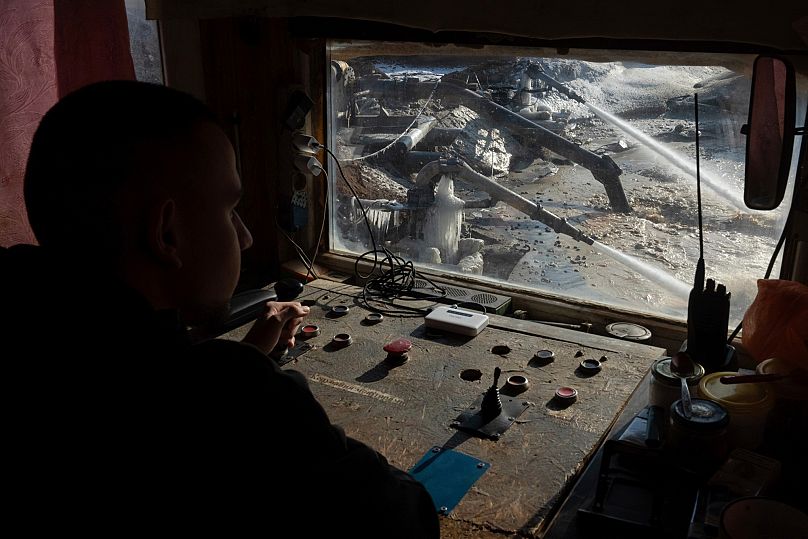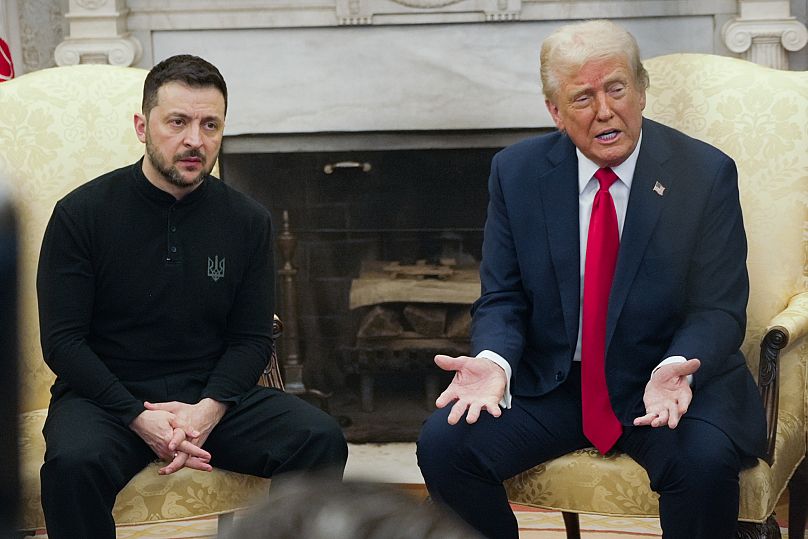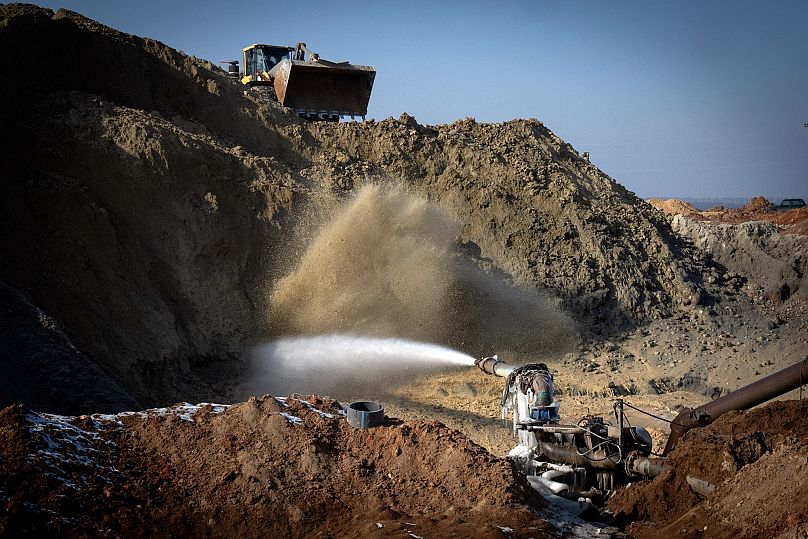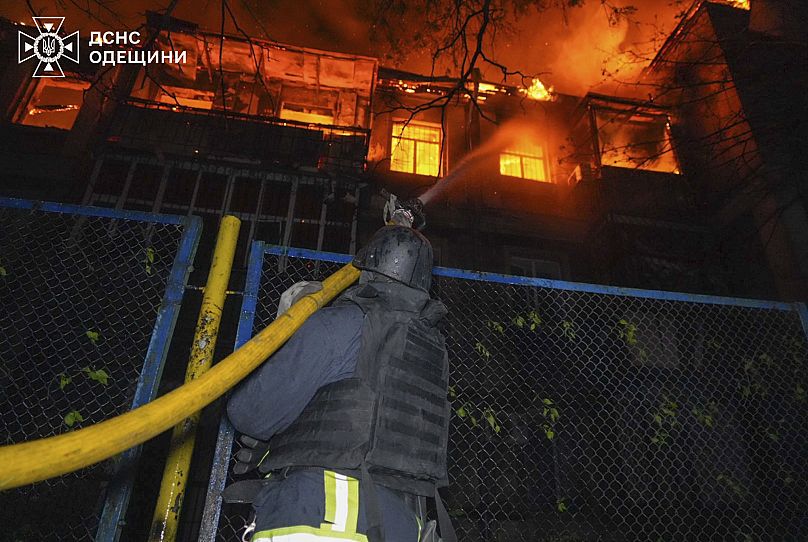The United States and Ukraine have signed a deal that is expected to give Washington access to the country’s critical minerals and other natural resources, an agreement Kyiv hopes will secure long-term support for its defence against Russia.
It comes after months of tense negotiations, and according to Ukrainian officials, the deal signed on Wednesday is far more beneficial to Ukraine than previous versions, which they criticised as reducing Kyiv to a junior partner and giving Washington unprecedented rights to the country's resources.
The agreement, which still needs to be ratified by the Ukrainian parliament, would establish a reconstruction fund for Ukraine that officials in Kyiv hope will be a vehicle to ensure future American military assistance.
A previous agreement was nearly signed before being derailed after a tense Oval Office shouting match involving US President Donald Trump, Vice President JD Vance and Ukraine's President Volodymyr Zelenskyy.

"We have formed a version of the agreement that provides mutually beneficial conditions for both countries," Ukraine's Economy Minister Yulia Svyrydenko said in a post on Facebook.
"This is an agreement in which the United States notes its commitment to promoting long-term peace in Ukraine and recognises the contribution that Ukraine has made to global security by giving up its nuclear arsenal," Svyrydenko explained.
Right before the deal was signed Wednesday, the State Department praised the agreement, saying the "United States is a friend to Ukraine."
"The minerals deal is to ensure and enduring economic partnerships with Ukraine, we want to see this partnership that is based on security, that is based on peace. That is based on really creating the conditions for the people in Ukraine to have the future that they deserve," State Department Deputy Spokesperson Mignon Houston told Euronews.
"I can say this president is a deal-maker and the president is focused on having an enduring economic partnership with Ukraine that is beneficial and prosperous for both of our nations," Mignon added.
"We know that the Ukrainian people deserve this, that the Ukrainian people deserve better than what they've seen and the suffering that they've seen over the last three years."

The signing comes during what US Secretary of State Marco Rubio said would be a "very critical" week for Washington-led efforts to end Russia's war that appear to have stalled.
Ukraine sees the deal as a way to ensure that its biggest and most consequential ally stays engaged and doesn't freeze military support, which has been key in its three-year fight against Russia’s full-scale invasion.
"This agreement signals clearly to Russia that the Trump administration is committed to a peace process centred on a free, sovereign, and prosperous Ukraine over the long term," Treasury Secretary Scott Bessent, who signed for the US, said in a statement.
What does the deal include?
The deal covers minerals, including rare earth elements, but also other valuable resources, including oil and natural gas, according to the text released by Ukraine's government.
It does not include resources that are already a source of revenue for the Ukrainian state.
Any profits under the deal are dependent on the success of new investments. Ukrainian officials have also noted that it does not refer to any debt obligations for Kyiv, meaning profits from the fund will likely not go toward paying the US back for its previous support.

Officials have also emphasised that the agreement ensures full ownership of the resources remains with Ukraine, and the state will determine what can be extracted and where.
The text of the deal lists 55 minerals but says more can be agreed to.
Trump has repeatedly expressed interest in Ukraine's rare earth elements, and some of them are included in the list, as are other critical minerals, such as titanium, lithium and uranium.
How will the fund work?
The agreement establishes a reconstruction investment fund, and both the US and Ukraine will have an equal say in its management, according to Svyrydenko.
The fund will be supported by the US government through the International Development Finance Corporation agency, which Ukraine hopes will attract investment and technology from American and European countries.
Ukraine is expected to contribute 50% of all future profits from government-owned natural resources into the fund.
The United States will also contribute in the form of direct funds and equipment, including badly needed air defence systems and other military aid.

Contributions to the fund will be reinvested in projects related to mining, oil and gas as well as infrastructure.
No profits will be taken from the fund for the first 10 years, Svyrydenko said.
Trump administration officials initially pushed for a deal in which Washington would receive $500 billion (€442 billion) in profits from exploited minerals as compensation for its wartime support.
But Zelenskyy rejected the offer, saying he would not sign off on an agreement "that will be paid off by 10 generations of Ukrainians."







